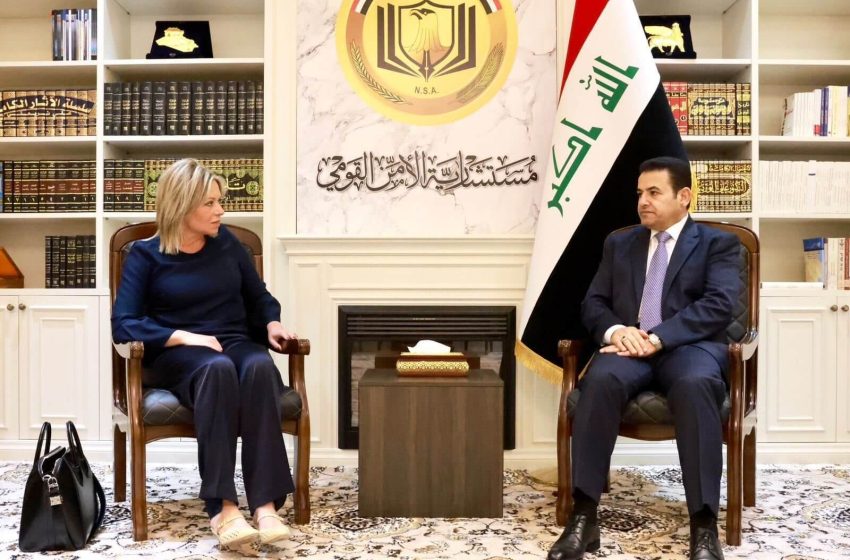Al-Araji, Plasschaert discuss Sinjar issue

The Iraqi National Security Advisor, Qasim Al-Araji, and the Special Representative of the Secretary-General of the United Nations in Iraq, Jeanine Hennis-Plasschaert. Photo: Iraqi News Agency
Baghdad (IraqiNews.com) – The Iraqi National Security Advisor, Qasim Al-Araji, and the Special Representative of the Secretary-General of the United Nations in Iraq, Jeanine Hennis-Plasschaert, during their meeting on Monday, stressed the importance of activating measures to resolve the Sinjar issue, the Iraqi News Agency (INA) reported.
Al-Araji reviewed the political and security situation at the international and regional levels, and discussed the issues of the Al-Hol camp in Syria and Sinjar, INA mentioned.
Both officials stressed the need to activate measures to resolve the Sinjar issue, promote community reconciliation, and create conditions to enhance security and stability in the area.
Hennis-Plasschaert affirmed that the United Nations continues to support the Iraqi government concerning the displaced and humanitarian fields.
The Iraqi National Security Advisor pointed out that the Iraqi government is working with the United Nations to achieve social stability and to be used to enhance security and to establish peaceful coexistence.
The Yazidi residents of Sinjar staged a protest on Thursday against the return of Arab families to the town.
The protesters said there are attempts to return displaced Arabs who were partners of ISIS, calling on the Iraqi army not to allow the displaced Arabs to return to the town.
The protesters also called on the Iraqi government to return the Yazidi Kurds from refugee camps to their areas of origin, instead of returning ‘ISIS partners.’
Statistics indicate that about 550,000 Yezidis used to live in Iraq, 360,000 of whom were displaced due to the war against ISIS terrorists.
135,860 Yazidis now live in Dohuk camps, while 189,337 Yazidis remain outside camps in cities in the Kurdistan region of Iraq, and 120,000 Yazidis immigrated abroad because of ISIS practices.
